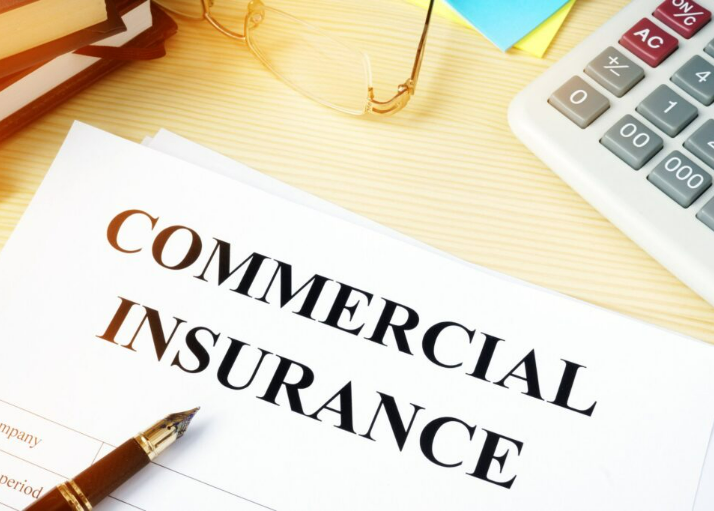Commercial Insurance: What Is It? Are You in Need of It?

Commercial insurance encompasses a wide range of coverage designed to safeguard businesses from various risks inherent in their operations. Also known as business insurance or commercial lines insurance, it differs from personal insurance, such as home or auto coverage.
Key types of commercial insurance include Commercial General Liability, Commercial Property, and Machinery Breakdown insurance. The specific type and amount of coverage required depend on factors like the size and nature of the business. In this article, we delve into the different types of business insurance to provide a comprehensive understanding of its workings and its relevance to different businesses.
Popular Types of Commercial Insurance
General Liability insurance is the most commonly purchased type of business insurance as it shields businesses from liability claims stemming from bodily injury and property damage occurring on their premises or through their operations and products. It also offers protection against claims made in advertisements and for personal injury liability. Essentially, it serves as comprehensive coverage against the common issues that can adversely affect a business.
Introduced in 1986, Commercial General Liability insurance replaced earlier “comprehensive” policies. Due to its broad coverage spectrum, most businesses opt for this type of insurance first. For many, Commercial General Liability insurance suffices as the sole coverage sought, as it is deemed to offer adequate protection against various risks.
Apart from General Liability coverage, business owners often opt for Commercial Property insurance. This type of insurance provides coverage in case physical assets suffer damage or destruction due to various types of losses, including fire, floods, or theft. Business owners with separate commercial property distinct from their residence should consider obtaining Commercial Property insurance.
How To Purchase Commercial Insurance

Commercial insurance is typically acquired through a licensed insurance broker who possesses expertise in evaluating businesses’ needs and recommending suitable insurance products. The primary objective of any business insurance is to safeguard businesses from unforeseen losses arising from events that may occur during regular operations.
For small business owners, commercial insurance holds particular significance. Given their potentially higher personal financial exposure in the event of a loss, small business owners should meticulously assess their insurance needs. If a business owner feels incapable of accurately evaluating their business risks, seeking assistance from a licensed insurance broker is advisable. A directory of licensed insurance agents can be obtained from a state’s Department of Insurance or the National Association of Insurance Commissioners.
Other Types Of Business Insurance

In addition to the fundamental types of business insurance discussed earlier, there are several other insurance options available to business owners. These include:
Home-Based Businesses
Typically, homeowner’s insurance policies do not extend coverage to home-based businesses as comprehensively as Commercial Property insurance does for businesses separate from the home. Individuals running businesses from their residences should consider obtaining specialized insurance tailored to their business needs. Such coverage may encompass protection for equipment, inventory, and liability associated with the home-based business.
Product Liability Insurance
If your business involves manufacturing products for sale, it’s prudent to consider Product Liability insurance. Regardless of the size of the business, there’s a risk of being implicated in legal disputes stemming from damages caused by defective products. Product liability insurance shields both the business and its proprietors from certain legal liabilities.
Vehicle Insurance
For vehicles used in business operations, comprehensive insurance coverage is essential, typically distinct from personal car insurance. However, if employees use their personal vehicles for work-related tasks, their personal insurance usually provides coverage in accidents. An exception arises when individuals are delivering goods or services for a fee. In such cases, it’s crucial for business owners to ensure proper insurance coverage for any vehicles used commercially.
Business Interruption Insurance
Commonly referred to as Business Interruption insurance, continuation insurance is tailored to help businesses cope during periods when operations are temporarily suspended. This coverage is typically applicable to physical locations like stores or manufacturing plants. Business Interruption insurance compensates owners for lost revenue during disruptions that halt operations, such as fires, natural disasters, or government mandates. Notably, standard business interruption policies often exclude coverage for viruses, bacteria, or pandemics. However, separate coverage for such situations is available.
In Conclusion
Having commercial insurance is essential for all business owners, irrespective of their business’s size, location, or workforce. With a wide array of business insurance options available, owners can tailor their coverage to match their specific needs.
While licensed insurance brokers can assist in determining the appropriate type of commercial insurance for a business, it’s also prudent for owners to evaluate their insurance requirements independently. Investing in a business insurance policy is a crucial step for safeguarding both the business and its proprietor from financial losses. However, it’s important to keep in mind that insurance brokers are essentially salespersons, and commercial insurance premiums can be costly. Therefore, it’s wise to acquire only the necessary insurance coverage to avoid the pitfall of over-insuring the business.



